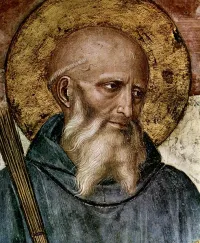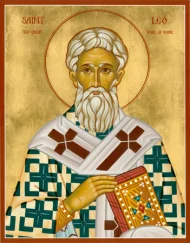 Continued from here….
Continued from here….
The New Testament raised the human body to the sublime and divine heights, endowing it with a glory which the Cherubim and Seraphim do not possess.
The Good News of the New Testament concerning the body—the significance and goal of the human body—is that, together with the soul, it achieves and inherits immortal life in Divine eternity.
The Lord Christ has come to deify, to make Christ-like, the entire man, that is, the soul and body, and this by the resurrection, ensuring thereby victory over death and eternal life.
No one ever elevated the human body as did the Lord Christ by His bodily resurrection, the ascension of His body into heaven, and its eternal session at the right hand of God the Father.
In this way, the Resurrected Christ extended the promise of resurrection to the nature of the human body—”having made for all flesh a path to eternal life.”
Thus man now knows that the body is created for eternity through union with the God-Man and that his divine work on earth is to struggle, with the soul, for eternal life;
to struggle, with all those means that convey grace and virtue, to make himself grace-filled, fulfilled by Divine grace, and created anew as the temple of the Holy Spirit, the temple of the Living God.
Bearing in mind that this New Testamental notion of the human body has been achieved and realized in the persons of the Saints, Christians show a pious veneration for the bodies of the Saints, towards holy relics, the temples of the Holy Spirit, Who by God’s grace abides within them.
But Holy Revelation indicates that by God’s immeasurable love for man, the Holy Spirit abides through His grace not only in the bodies of the Saints, but also in their clothing.
So it is that the handkerchiefs of the holy apostle Paul healed the ill and expelled unclean spirits (Acts 19:12).
With his mantle the Prophet Elias struck the water, separating the waters of the Jordan, and along the dry bed of the river crossed the Jordan with his disciple Elisea (IV Kings 2:8).
The prophet Elisea did the very same thing, himself, with the same mantle, after the taking-up of Elias into heaven (IV Kings 2:14).
All this has its verification and source in the Divine power that rested in the garments of the Savior, which encompassed His most pure and Divine body.
Moreover, by His inexpressible love for man, the Divine Lord allows the servants of His Divinity to work miracles not only through their bodies and clothing, but even with the shadow of their bodies, which is evident in an occurrence with the holy apostle Peter: his shadow healed an ill man and expelled unclean spirits (Acts 5:15-16).
Justin Popovich (1894-1979; Orthodox Church): The Place of Holy Relics in the Orthodox Church @ OCIC.









